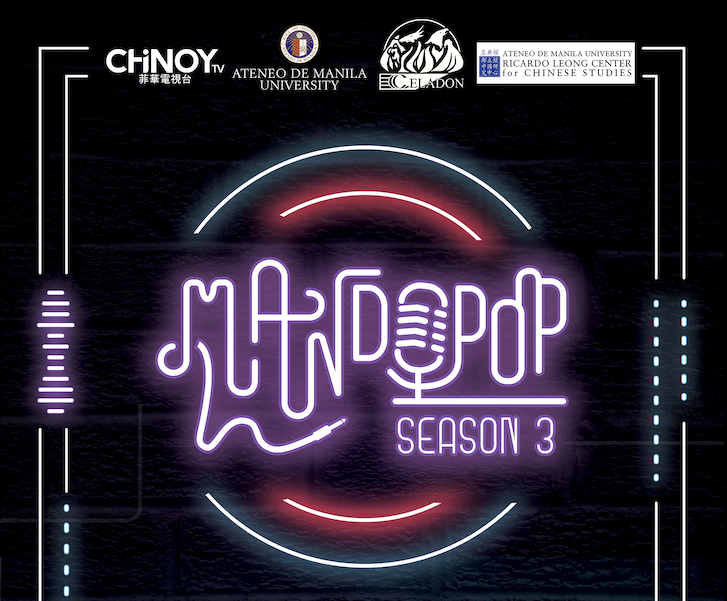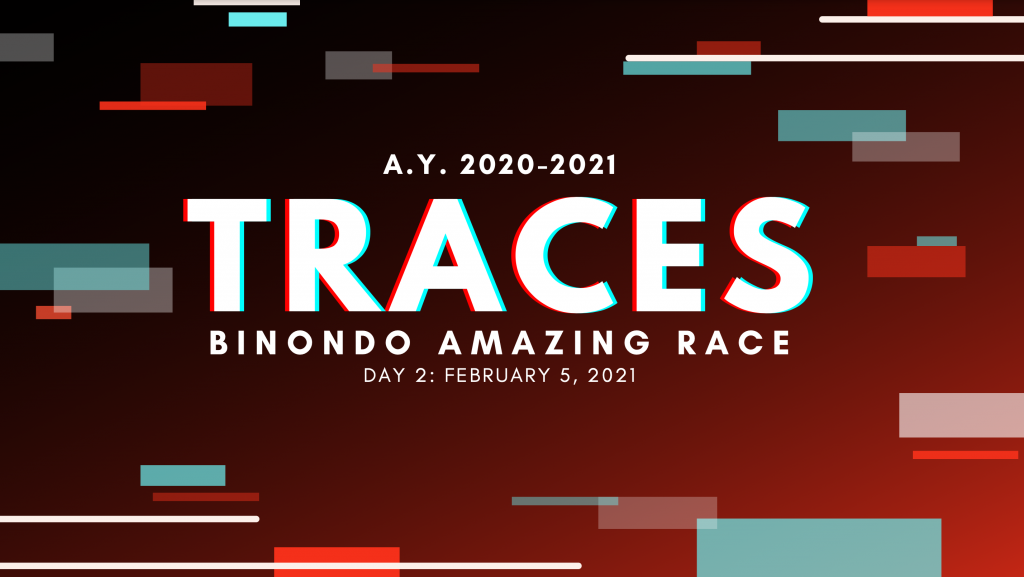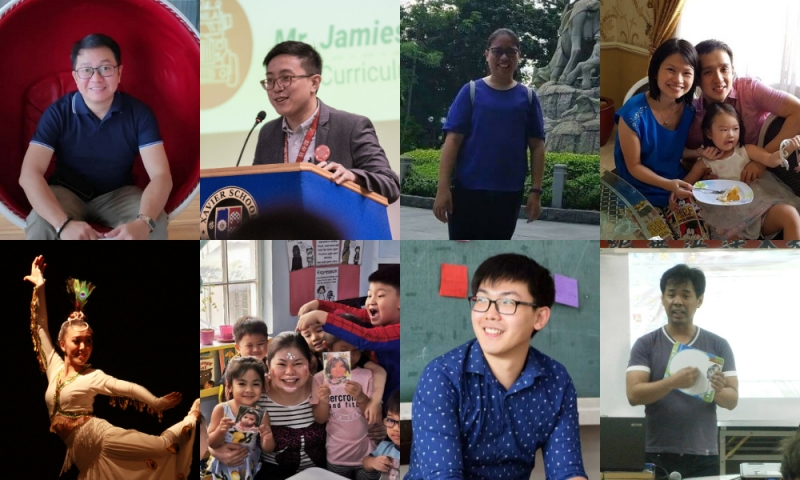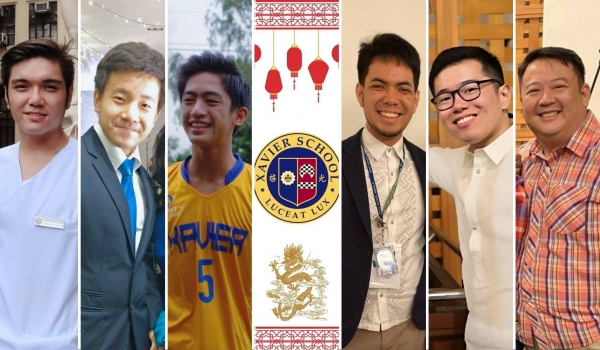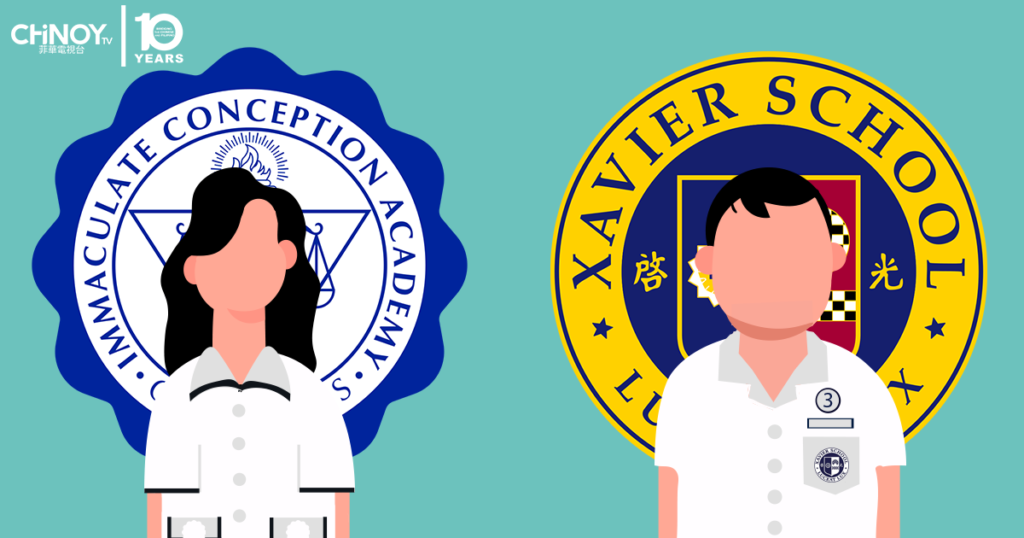Alemberg Ang: The Accidental Film Producer
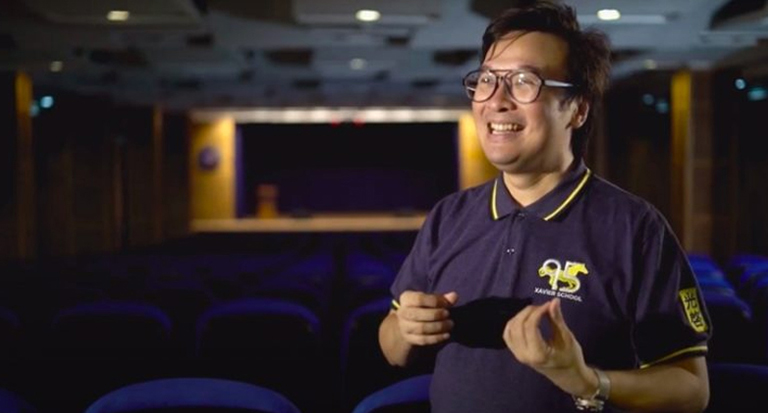
“If you asked me then [that] someday I’ll be a film producer, I would just laugh at you. Never in my imagination that I would eventually end up in film,” confessed independent film producer Alemberg Ang. Ang was a theater geek and a former teacher who took a chance when he accepted his colleague’s invitation to produce his film, despite having not much experience nor interest in movies. He has since produced several award-winning and critically-acclaimed “indie” films, and now he looks back in the unexpected ways he ended up as a producer.
AN UNEXPECTED CAREER
Alemberg Ang was born as the youngest of four siblings, and was an alumnus of Xavier School and Ateneo de Manila University, majoring in AB Communication. He also taught part-time at Ateneo de Manila High School during his senior year in ADMU, before moving back to Xavier, totalling ten years overall in teaching.
He admitted that was less of a film buff, and more of a theater geek instead. Describing himself getting into film as an “accident,” he recounted his colleague who was an ADMU teacher who got in Cinemalaya with his film Ang Panggagahasa kay Fe (The Rapture of Fe) (2009). His colleague asked Ang if he could produce the film, even though Ang’s only background in film production was the production classes he took in college. His friend’s reply? “‘It’s okay, you can handle the money matters. You’re Chinese anyway, you can do it.’ So essentially, my criteria [were]: I’m Chinese, and I’m just gonna handle the financial matters and raising money for the production,” he states with a laugh, and he accepted the job not knowing what’s in store for him.
Describing his experience in The Rapture of Fe as “one big on-the-job-training” for him, Ang believed it would be a one-time stint as he thought he would end up in corporate or marketing. He did not expect the film’s success come awards season, with the film winning the Digital Competition category in the 33rd Cairo International Film Festival in 2009. From then on, he got several offers to produce other independent films, primarily Cinemalaya movies.
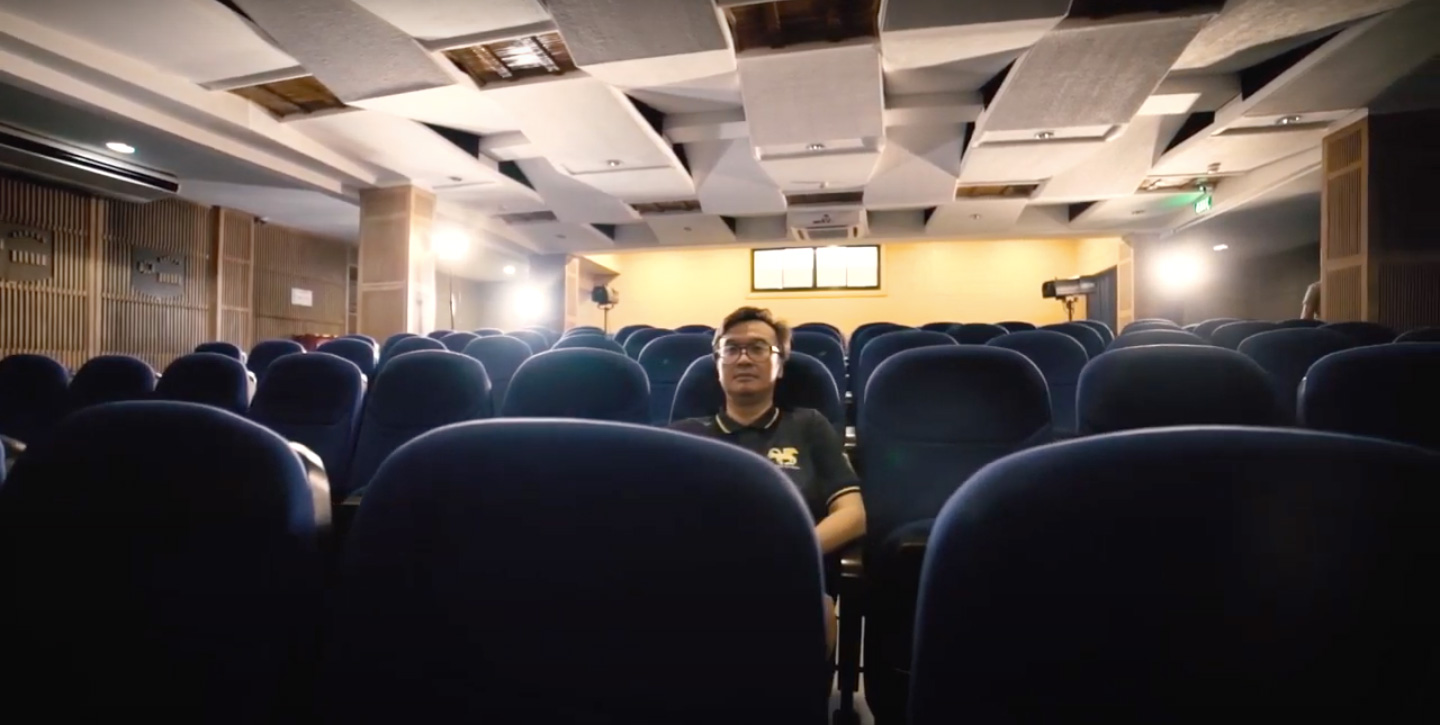
A GROWING FILMOGRAPHY
He considers The Dance of the Two Left Feet (2011) one of the most memorable films he’s made. “I like to think that this actually sealed my career as a film producer,” he says, especially how difficult it was to make to the point that he thought it was his swan song with producing movies in general. The film lacked budget to the point that Ang would be tutoring one day, and then using the money he earned to spend on the film the next day. “It was so bad that I had friends who took me to Dangwa just to look at flowers, because I was so stressed,” he revealed, “but [the movie] opened so many doors. For one, we did not expect to win the [Gawad] Urian [Award].” The film’s success in the Urians led to more opportunities abroad as well.
One of the biggest movies he’s ever done was Ang Larawan (The Portrait), released during the Metro Manila Film Festival in 2017, as it was a big-budgeted venture with movie and theater veterans attached to the film, such as Joanna Ampil, Menchu Lauchengco-Yulo, Celeste Legazpi, and legendary composer Ryan Cayabyab. It satisfied the desires of both his current career as a film producer and his first love as a theater geek, having seen the original play when he was in high school. He also cited a time when they had to rehearse in his alma mater in Xavier when they were out of places to rent, and it was surreal for him to see big names like Rachel Alejandro and Paulo Avelino rehearsing and Ryan Cayabyab playing the piano in the venue where he would stage plays as a high schooler.
Ang confesses that one of the biggest struggles in being in independent cinema is money. “There’s no money in the indies,” he says, “although it was a deliberate and conscious choice to work in independent cinema. Had I gone to one of the networks or mainstream, I would have a steady income. I guess it’s not as fulfilling working in mainstream cinema than working in independent cinema.” Having big aspirations with limited budgeting meant that he and his crew needed to be more creative in what they could afford to complete the film without compromising artistry and the filmmakers’ vision.
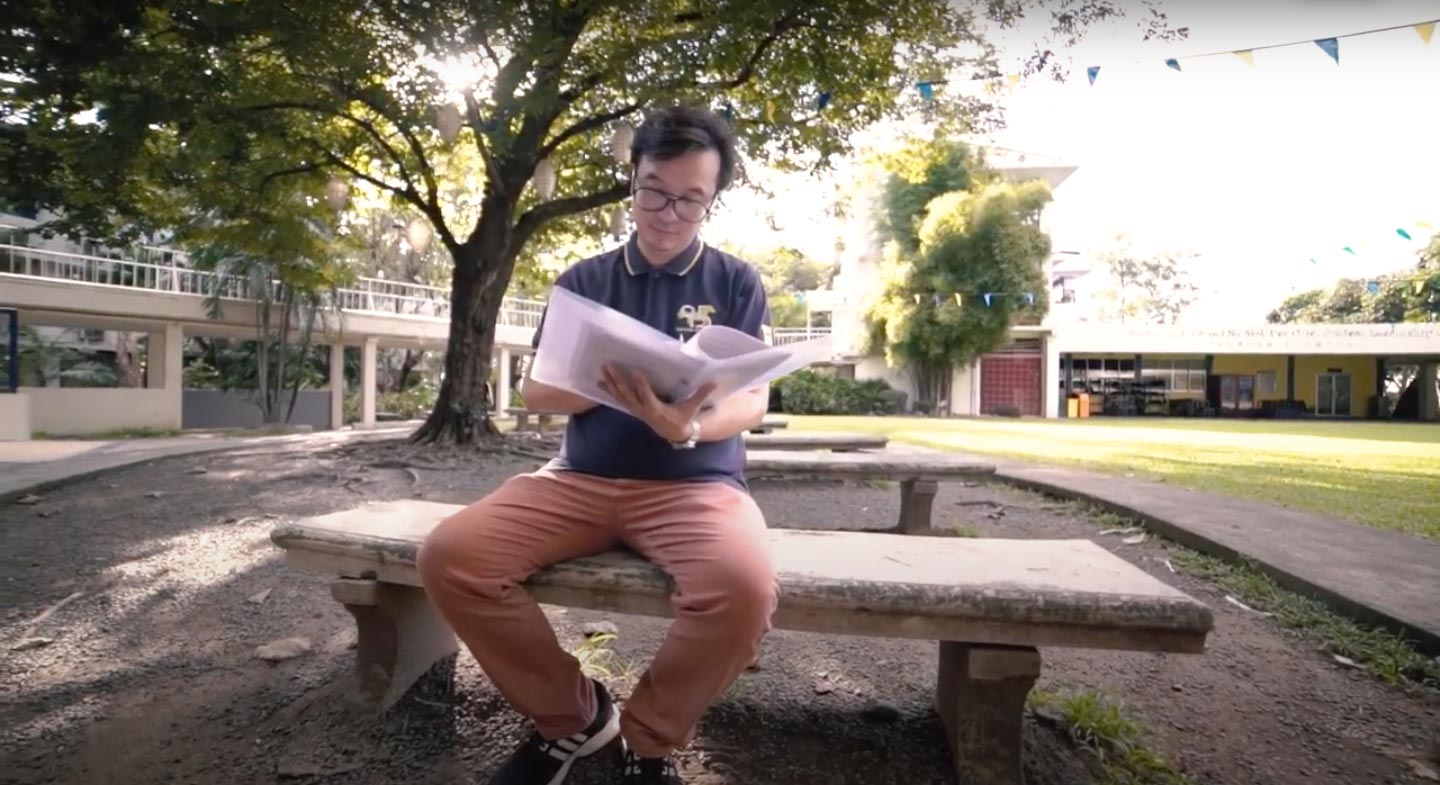
PAYING IT BACK
“I feel like my dad trained me to be a producer,” he said, with him receiving no allowances during academic breaks, but he will give extra for their allowance, and it was up to him and his siblings to save their allowances. “As early as when I was in Grade 5, I would get my allowance every 15th and 30th, and if I have expenses, like if I have additional expenses for school, I have to write it down, save the receipt, and then reimburse, which is essentially what I do now in film,” he narrates, and these practices taught by his father led to him being a stingy producer, saying, “When I do spend on something, I want it to count, and I want it to matter. [In film], there are things that I don’t want to spend on, no matter how big or small the amount, but there are other things that are [more expensive], but I know it’s worth it and therefore it’s worth spending on.” He adds that this was one of the benefits of being raised as a Chinoy, in addition to the “amazing” network from fellow Chinese-Filipinos and fellow Xavier alumni that have supported his films. “It pays to be nice to people. It pays to be kind, as simple as a festival volunteer picking you up from the airport, bringing you to your venue or your hotel, or interns working with you, making sure to feed everyone well. People remember the goodness that you’ve done. And it also pays [off].
Despite his long running-success, Ang confesses that he gets depressive episodes in questioning his line of work when he would end up in the red after spending to finish a film. “And yet, every time I want to throw in the towel already, something comes in,” he says, citing surprise opportunities such as being invited to overseas production workshops. “Not everything in the world is about money. I think as Chinoys, we have been trained to value money and to make the most out of our work or to find a good job and career. And there’s nothing wrong about that,” he shares, but “if there’s something that you love, I say go for it, because at the end of the day, I think happiness outweighs how much money you have, or what kind of car you drive, or what kind of clothes you wear. It’s still [more] important to feed your soul than just to feed your bank account.”
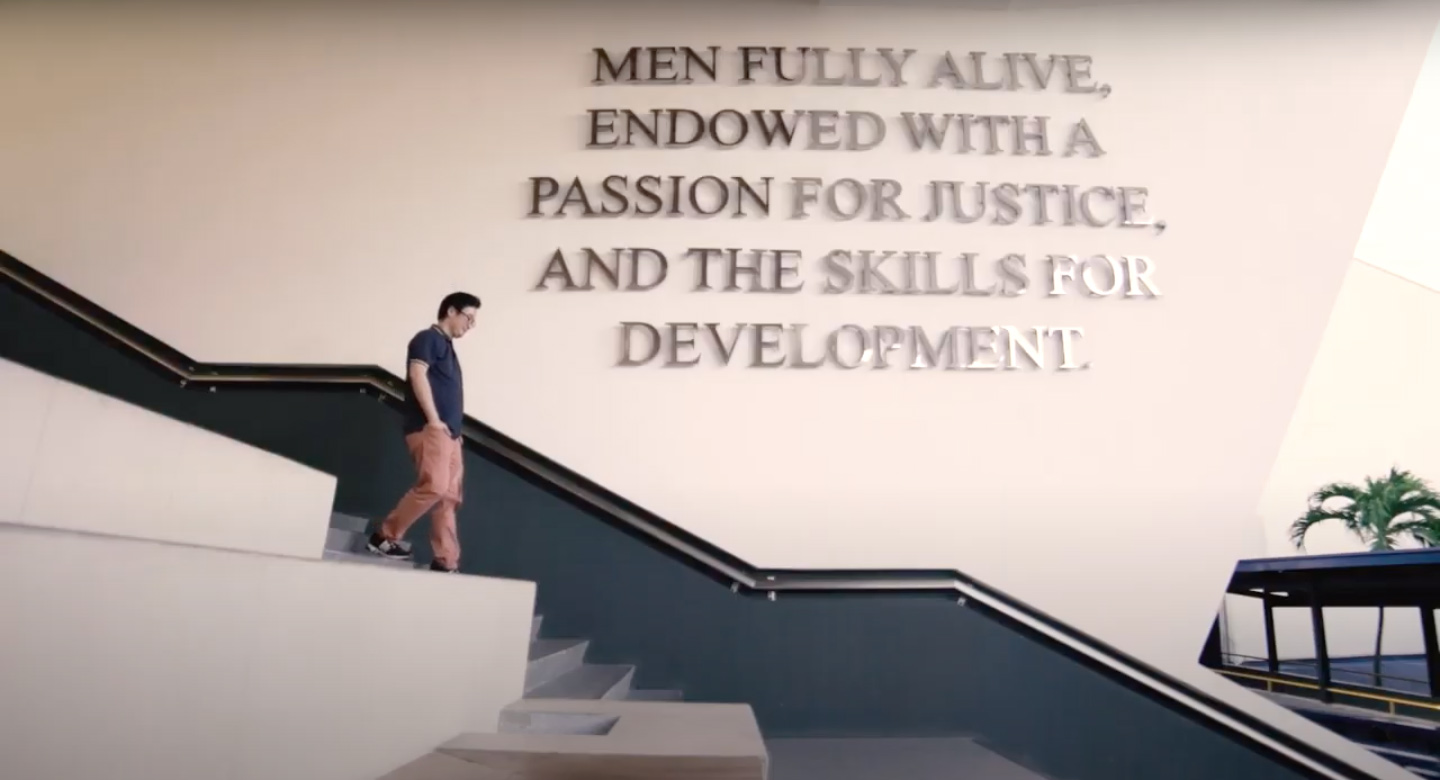
MOVING PICTURES
For Chinoys who also want to pursue the arts like Ang, he advises to be wise about it and to “go for it,” and he assured that friends and family will eventually support you. For Ang, what keeps him going is that people say to him and his movies personally moved them. “I hope that in ten years, the films that I have done still matter, and that they still speak to the youth today about the world that we live in and inspire them to either change the world or to make the world a better place for everyone,” he shares.
At the same time, Ang believes he might be mentoring young producers in the future. He hopes for more independent producers who work on international projects, as well as industry players who will support it to make it competitive internationally. “More than loving film per se, I actually love the power of film,” he concludes, continuing, “I love how film can move people. Move people emotionally, but more importantly move people for action. We are at a point in our country – even the world’s history – that there’s just so many things wrong, and I sometimes see how one film can actually move people to action. If there’s one thing I love about film, it’s the power of film to change people.”
If you want to learn more about this Chinoy, watch his extended CHiNOY Profiles here!

